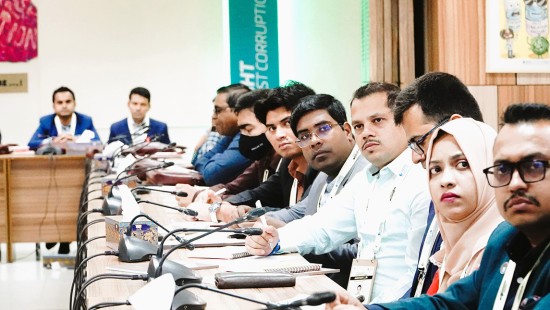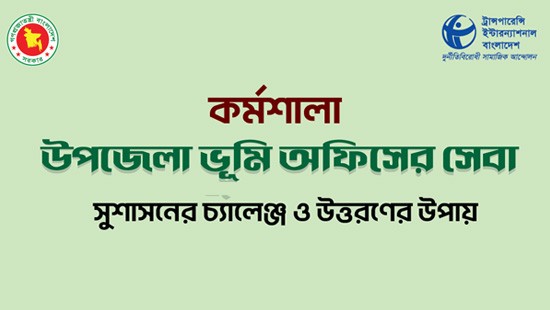Published: 20 March 2025
Human rights activists and civil society members unanimously called on the interim government to present a clear, time-bound roadmap for implementing the recommendations of a UN report on human rights violations during the July uprising. They said this would ensure accountability for the violations and bring about necessary reforms to state entities. These demands were made at a press conference held at the Transparency International Bangladesh (TIB) office in Dhaka, where 20 rights activists and civil society organizations, including TIB, gathered under the banner of Human Rights Forum Bangladesh (HRFB).
Showing solidarity with the demand, TIB also emphasized the need to reform state agencies responsible for surveillance and called for adherence to international standards in surveillance practices, warning that failure to do so could lead to violations of fundamental human rights. As part of its commitment to accountability and justice, TIB joined the press conference alongside HRFB. During the July uprising, TIB had also criticized the fallen AL government and raised its voice against human rights violations and killings.
After the fall of the AL government, Interim Government Chief Adviser Dr. Muhammad Yunus initiated an independent UN mission to investigate rights violations between July 1 and August 15, 2024. The mission confirmed over 1,400 deaths—including journalists, civilians, women, and children—and thousands injured, mostly by state security forces. It also reported severe media and internet restrictions. To prevent future violations, the UN recommended urgent reforms in five areas: justice and accountability, security forces, civic rights, political systems, and economic governance—including prosecuting extrajudicial killings, disbanding RAB, amending the Cyber Security Act, and protecting freedom of expression.
Speakers at the press conference stressed that a time-bound roadmap to implement the UN recommendations is imperative—not optional. Without it, the chance to ensure accountability and build a rights-respecting state may be lost. The Forum urged the government to issue a clear statement and actionable plan.
Echoing HRFB's position, TIB Executive Director Dr. Iftekharuzzaman emphasized the urgency of a time-bound roadmap, highlighting the UN report as a key international document to avert future rights abuses. He called for dismantling RAB and NTMC due to their roles in surveillance and rights violations. Linking corruption to authoritarianism, he stressed the need for security sector reform, including overhauling the outdated 1861 Police Ordinance. He also supported UN recommendations to confine BGB to border duties, limit DGFI to military intelligence, and end Ansar VDP’s military authority.
The press conference was attended by a notable assembly of human rights leaders, including Shamsul Huda of ALR; Rowshan Ara, Project Director of Naripokkho; Md. Barkat Ali of Bangladesh Legal Aid and Services Trust (BLAST); Zakir Hossain of Nagorik Uddyog; and Ranjan Karmaker of Steps Towards Development, among others, all members of the HRFB Steering Committee, lending their collective weight to this critical call for transformative change.








